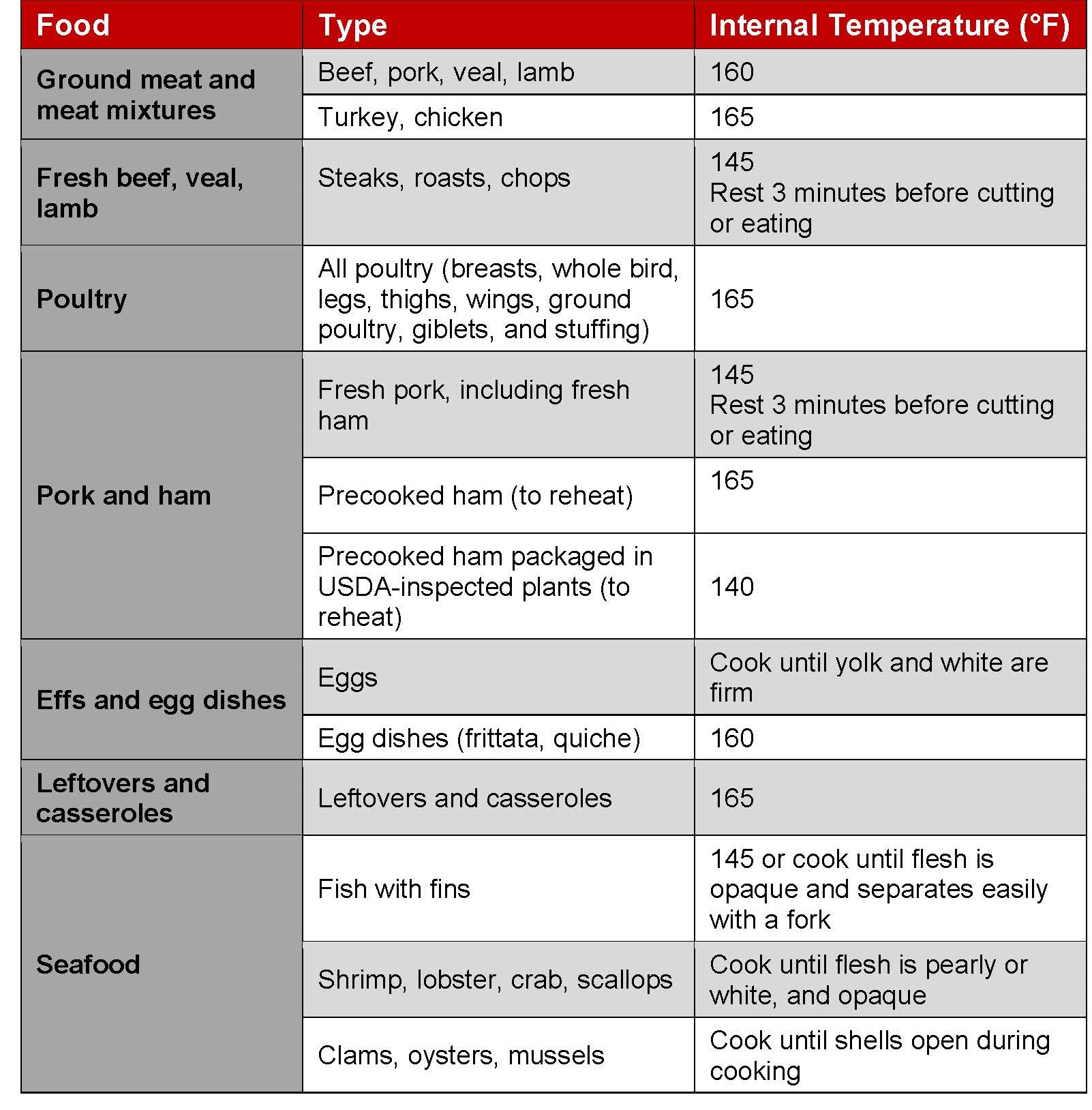Store food safely.
- Always store food within 1 hour of purchasing or cooking or as soon as possible.
- Label food (use a marker or pen) with a “use by” date if the packaging does not have an expiration date.
- Put foods with the soonest expiration date at the front of the fridge or shelves so that you are more likely to use them.
- Discard leftovers or open packages within 1 to 4 days. If you are unsure if something is safe to eat, remember, when in doubt, throw it out.
Be careful when eating at restaurants and shopping for food.
- Buy only from trusted vendors with high grades in health department
inspections.
- Avoid buying food from street vendors.
- Do not eat free food samples when shopping.
- Do not choose restaurants with buffets when eating out. If you are at a party, ask if your loved one can go through the buffet line first.
- At restaurants, ask for meat to be prepared well-done.
- If taking home leftovers, ask to bag the food yourself and make sure to refrigerate the leftovers quickly.
Wash fruits and vegetables.
- Before peeling or cutting, rinse produce under running water.
- Rub gently to remove any dirt. There’s no need to use soap or a produce wash.
- Scrub firm produce, such as melons, with a produce brush.
- Dry with a clean cloth or paper towel.
- Remove and throw away the outer most leaves of a head of lettuce or cabbage.
- Follow any additional guidelines provided by your healthcare team.
Avoid foods associated with foodborne illness.
- Raw or undercooked meats
- Unpasteurized milk and juices
- Soft cheeses made with unpasteurized milk such as feta, blue cheese, Roquefort, Stilton, brie, or Farmer’s cheese
- Processed meats such as luncheon meats as well as anything else from a deli counter
- Refrigerated meat spreads or paté
- Smoked fish or precooked shrimp or crab meat
- Sprouts such as bean sprouts, alfalfa sprouts, or broccoli sprouts
- Pre-cut fresh fruit and vegetables. Buy them whole, wash, and cut them yourself.
- Unwashed fresh fruits and vegetables
- Unroasted or raw nuts and seeds
- Raw tofu or tempeh
- Food from salad bars of buffets
- “Fresh” salad dressings, salsas, sauces, etc. sold in the refrigerated section of the grocery store.
- Raw apple cider
- Raw honey
- Unrefrigerated cream filled pastries
- Well water, unless tested or boiled for 1 minute before drinking or boiled for 3 minutes
before drinking in altitudes of about 2,000 meters (about 6,562 feet).
The guidelines above were created with those who have weakened immune systems in mind. Consult your doctor or healthcare team for regular updates on your blood counts and the status of your immune system. Ask you treatment team for any additional guidelines.
What should you do if you suspect a foodborne illness?
If you or your loved one gets a foodborne illness, have a plan. Alert the healthcare team as soon as possible. Symptoms of foodborne illness include fever, diarrhea, nausea, vomiting, and/or stomach cramps. Mark any recently eaten food or beverage as “do not eat.” Keep the containers in the fridge in case the healthcare team wants to test any of the foods.
What is a “Neutropenic Diet?”
You may hear food safety guidelines for people with a severely weakened immune system referred to as a “neutropenic diet.” This diet was supposed to help individuals with neutropenia learn how to decrease exposure to bacteria and other harmful organisms found in some foods. However, a universally-accepted definition of what foods should be included was never developed.
In a review of studies, the neutropenic diet was never proven to decrease exposure to bacteria in foods. This diet does not seem to benefit patients in any way. Safe preparation and handling of foods is more important than restricting intake of specific food groups, as balanced diet and nutrition is important for coping with chemotherapy and other treatments.
Food guidelines for immunosuppressed patients vary among cancer centers. Ask your doctor for any special instructions.
If you are currently undergoing cancer treatment, you may be experiencing side effects. For tips on managing your side effects, visit Nutrition Tips for Managing Side Effects.

